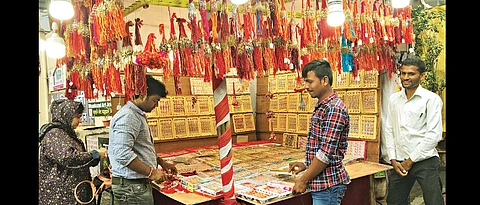

Pune: This year’s Rakhi festival is poised to generate a nationwide turnover of more than ₹12,000 crore, reflecting a significant surge in consumer spending.
According to the Confederation of All India Traders (CAIT), the market is bustling with shoppers, demonstrating widespread enthusiasm for the festival. The trend of purchasing only indigenous Rakhis continues this year, with no demand for Chinese alternatives.
CAIT has reported a notable increase in demand for Pune’s Seed Rakhis across the country. The organization has urged both traders and consumers to celebrate festivals using Indian-made products and to prioritize local producers.
Praveen Khandelwal, CAIT’s National General Secretary, projected that this year’s Rakhi business could reach ₹12,000 crore, up from ₹10,000 crore in 2022.
In the preceding years, Rakhi-related sales totaled ₹7,000 crore in 2022, ₹6,000 crore in 2021, ₹5,000 crore in 2020, ₹3,500 crore in 2019, and ₹3,000 crore in 2018.
Special varieties of Rakhis crafted from well-known products across various cities are driving this year’s sales. These include Khadi Rakhis from Nagpur, Sanganeri Art Rakhis from Jaipur, Seed Rakhis from Pune, Woolen Rakhis from Satna in Madhya Pradesh, Bamboo Rakhis made from tribal products, Tea Leaf Rakhis from Assam, Jute Rakhis from Kolkata, and Silk Rakhis from Mumbai, as highlighted by CAIT’s National President, B.C. Bhartia.
The focus on selling Indian products has gained momentum, with consumers increasingly opting for locally made goods. Over the past four years, CAIT has successfully led a campaign to promote the purchase of Indian products and boycott Chinese goods, particularly during festivals, to support local producers, said Sachin Nivangune, CAIT’s State President.
